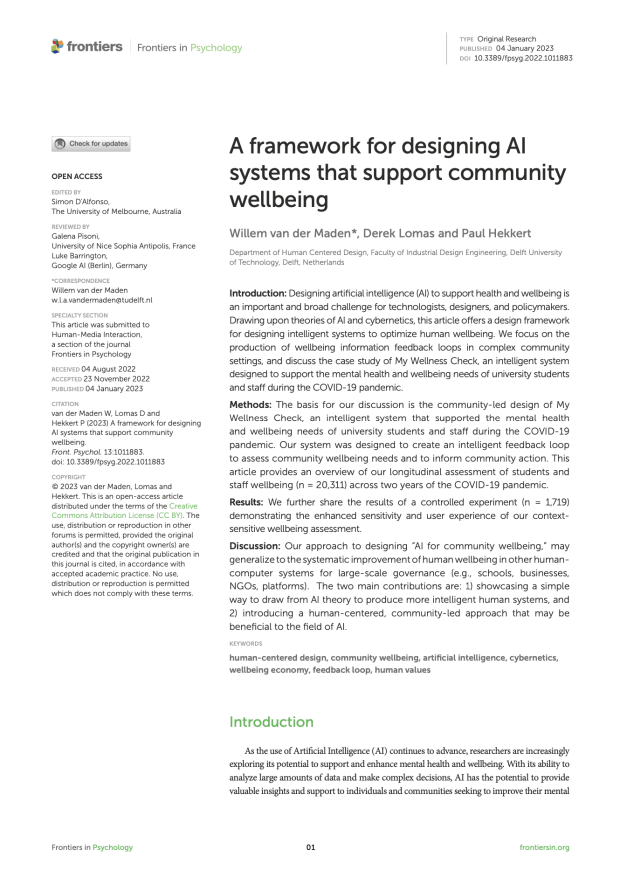Introduction: Designing artificial intelligence (AI) to support health and wellbeing is an important and broad challenge for technologists, designers, and policymakers. Drawing upon theories of AI and cybernetics, this article offers a design framework for designing intelligent systems to optimize human wellbeing. We focus on the production of wellbeing information feedback loops in complex community settings, and discuss the case study of My Wellness Check, an intelligent system designed to support the mental health and wellbeing needs of university students and staff during the COVID-19 pandemic.
Methods: The basis for our discussion is the community-led design of My Wellness Check, an intelligent system that supported the mental health and wellbeing needs of university students and staff during the COVID-19 pandemic. Our system was designed to create an intelligent feedback loop to assess community wellbeing needs and to inform community action. This article provides an overview of our longitudinal assessment of students and staff wellbeing (n = 20,311) across two years of the COVID-19 pandemic.
Results: We further share the results of a controlled experiment (n = 1,719) demonstrating the enhanced sensitivity and user experience of our context-sensitive wellbeing assessment.
Discussion: Our approach to designing “AI for community wellbeing,” may generalize to the systematic improvement of human wellbeing in other human-computer systems for large-scale governance (e.g., schools, businesses, NGOs, platforms). The two main contributions are: 1) showcasing a simple way to draw from AI theory to produce more intelligent human systems, and 2) introducing a human-centered, community-led approach that may be beneficial to the field of AI.

van der Maden, W., Lomas, D., & Hekkert, P. (2023). A framework for designing AI systems that support community wellbeing. Frontiers in Psychology, 13. https://doi.org/10.3389/fpsyg.2022.1011883



